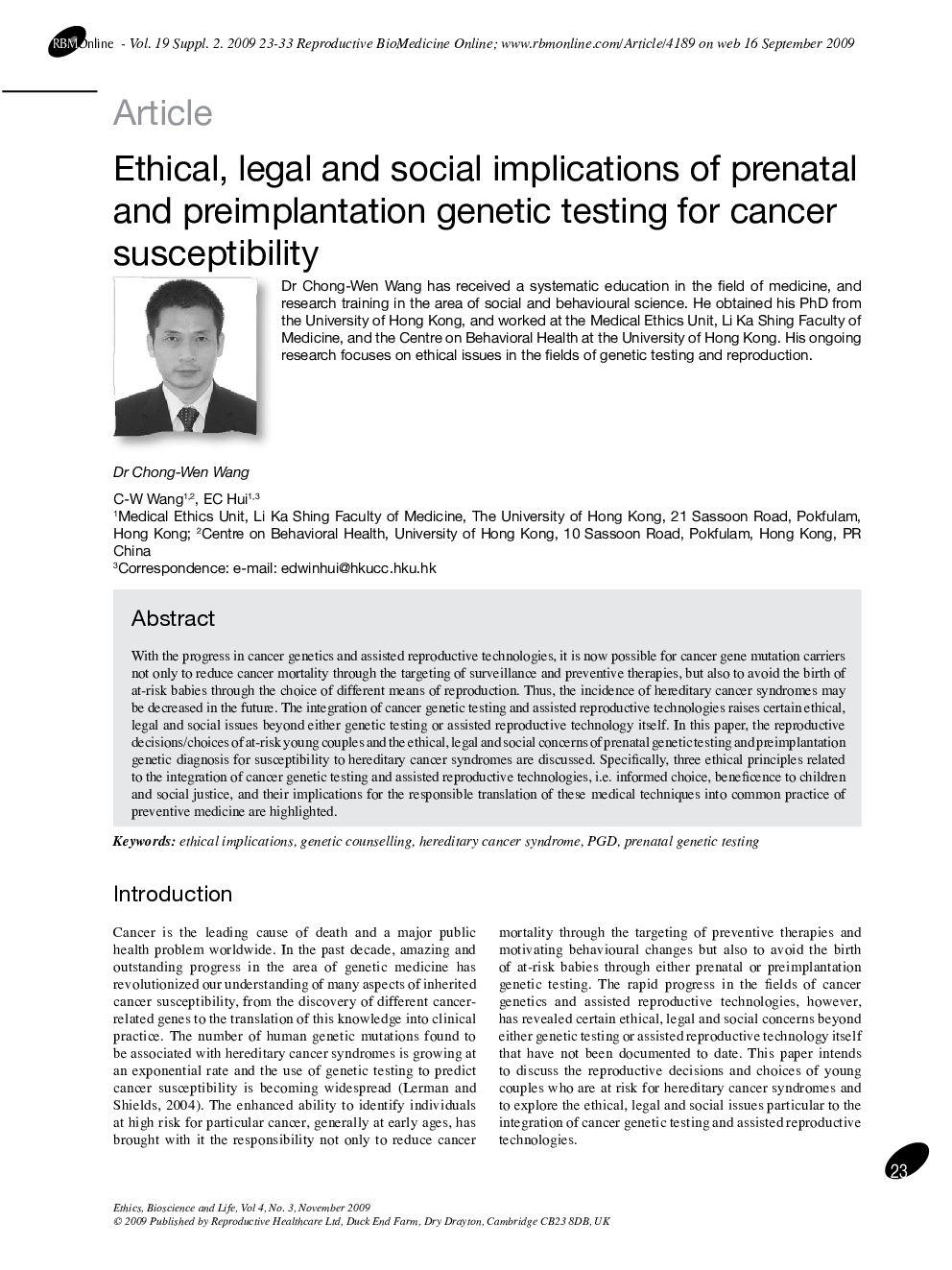| Article ID | Journal | Published Year | Pages | File Type |
|---|---|---|---|---|
| 3972366 | Reproductive BioMedicine Online | 2009 | 11 Pages |
With the progress in cancer genetics and assisted reproductive technologies, it is now possible for cancer gene mutation carriers not only to reduce cancer mortality through the targeting of surveillance and preventive therapies, but also to avoid the birth of at-risk babies through the choice of different means of reproduction. Thus, the incidence of hereditary cancer syndromes may be decreased in the future. The integration of cancer genetic testing and assisted reproductive technologies raises certain ethical, legal and social issues beyond either genetic testing or assisted reproductive technology itself. In this paper, the reproductive decisions/choices of at-risk young couples and the ethical, legal and social concerns of prenatal genetic testing and preimplantation genetic diagnosis for susceptibility to hereditary cancer syndromes are discussed. Specifically, three ethical principles related to the integration of cancer genetic testing and assisted reproductive technologies, i.e. informed choice, beneficence to children and social justice, and their implications for the responsible translation of these medical techniques into common practice of preventive medicine are highlighted.
